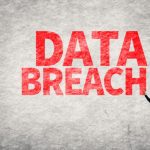Debunking the three major ransomware myths

On March 14, the UK National Crime Agency and National Cyber Security Center sounded the alarm about the growing cyber threat. One of their conclusions was that ransomware represents a significant, and growing, threat to UK business. Combine this with the fact that the last 12 months has seen cyber attacks on an unprecedented scale, and you’ve got a melting pot of cyber activity right now.
These warnings come as no surprise. Ransomware use has exploded over the past year or so, particularly in the UK, simply because it is an easy way for cyber criminals to make significant amounts of money. Ransomware works, simply because many firms are forced to pay the ransom because they don’t have the defense systems in place to avoid doing so.
Managing BYOD: Best practices

BYOD is dying. It’s not that people no longer bring devices to work. It’s that everyone brings their devices to work. Whether you use BYOx (bring your own everything) to describe this phenomenon or some other term, there are important concerns to be addressed.
For example, will you be providing devices to all employees, some employees (e.g., managers and executives) or no employees? How will user-owned devices connect to the network and how do you ensure personal and corporate data separation? What about company-owned devices and who owns, and thus has free access to, the data stored on them? And what happens when a device with company data or the ability to connect to the company network is stolen?
Businesses lose 44 data records every second

Before you are done reading this article, there will have been more than 2,500 digital records stolen. This is according to a new report by Gemalto, which was released to show just how unprepared UK's businesses are for cyber risks.
Gemalto says that in 2016 1.37 billion data records were compromised. That basically means 3,776,738 records every day, 157,364 every hour, 2,623 every minute, or 44 data records every second.
European information security execs face major challenge from insider threats

New research shows that 35 percent of employees across the UK, France, Germany and Italy admit to have been involved in a security breach.
This presents CISOs with a significant challenge when it comes to protecting company data, particularly in light of the forthcoming European General Data Protection Regulation (GDPR) which comes into effect in early 2018.
Why ethical hacking is the top job of 2017

61 percent of UK businesses believe they will suffer from cyber crime in 2017, according to new research from Mimecast. These anxieties are justified: two thirds of large UK businesses were targeted by cyber criminals last year.
As the threat posed by cyber crime increases, businesses now invest more than ever in training, technology and skills -- global cyber spending is predicted to reach $1 trillion by 2021.
How strong endpoint security can prevent cyberattacks

Businesses with dispersed and on-the-move employees are struggling to strike a difficult balance between the benefits of remote working and the security risks it creates. Security software designed to protect data at risk is nullified if it can be removed. To achieve their own stringent security aims while satisfying the demands of increasingly tight and punitive regulation, companies need a more persistent security solution.
Many organizations consider it to be only a matter of time before they fall victim to a cyberattack. PwC's 2016 Economic Crime Survey revealed that over half of responding UK organizations consider it likely they’ll suffer from cybercrime in the next two years. The prevalence of cybercrime makes detection and response capabilities critical in business today.
Informatica uses behavioral analytics to spot and protect high risk data

With increasing amounts of sensitive data stored in the cloud and accessed on mobile devices, protecting that information presents a major challenge.
Data management specialist Informatica is adding to its Secure@Source platform with behavioral analytics to detect high risk data and ensure it's properly protected.
The top three barriers to digital transformation

To stay competitive in an increasingly digital world, companies are looking to transform their digital environment to improve collaboration and maintain their edge.
But a new study by Intralinks and the Cloud Security Alliance reveals that digital transformation strategies are being hindered by three main barriers.
Hybrid clouds will become mainstream in 2017

We've been talking about the cloud for some years now and, while we may look back at 2016 as a year of growing enterprise cloud adoption, 2017 will be the year when hybrid clouds really enter the mainstream. Cloud is no longer "optional" for enterprises looking to remain competitive: with businesses demanding ever-greater agility from their IT functions and with data growth continuing to explode at an alarming rate, more and more IT departments are looking to move critical IT services to a combination of private and public cloud.
Research by Veritas in 2016 found that 38 percent of workloads today exist in a private cloud, with 28 percent in a public cloud. And these numbers are expected to grow at rates of seven percent and 18 percent respectively this year. Here are a few of my thoughts and on how businesses are going to transform the way they use hybrid cloud in 2017.
Privacy-protecting Ghostery extension sold, Ghostery Inc becomes Evidon after acquisition

There's big news in the world of Ghostery Inc, the company best-known for the browser extension that boosts privacy. The firm's consumer operations have been sold to Cliqz, a German company part-owned by Mozilla, where the Ghostery extension will live on.
Ghostery Inc is rebranding to its former identity of Evidon, which will have a B2B focus. Evidon Inc will provide "monitoring and consent solutions for over 500 leading brands across the world." The deal with Cliqz is an all-cash affair, but details have not been released.
New platform helps enterprises comply with privacy regulations
Microsoft aims to calm cloud security fears with revamped Trust Center site

The modern Microsoft places more importance on the cloud than ever before, and this means addressing the security concerns that users might have. As part of this, the company has upgraded and redesigned its Trust Center, home to a wealth of security information.
Designed to provide "support and resources for information professionals, as well as the legal and compliance community," the Trust Center is also of interest to anyone concerned about security in general and those who want to know how Microsoft is complying with laws around the world.
Hiring a hacker: Why and how you should do it

The global cost of cybercrime could reach £4.9 trillion annually by 2021, according to a recent report from Cybersecurity Ventures. Cyber crime incidents continue to plague organizations globally, even as businesses pour money into boosting their security.
But how do businesses deal with vulnerabilities they cannot identify? It only takes one smart hacker to discover a backdoor and get access to your sensitive data and systems. Organizations must identify the weaknesses in their cyber security, before -- not after -- they’re exploited by hackers. However, to beat a hacker you’ll need to think like one. Here’s how -- and why -- you should hire a hacker.
Most banks aren't confident they can detect a data breach

Consumers are quite confident banks and insurers can keep their data safe, but these organizations aren’t that sure. A new report by Capgemini has shown that financial institutions lack a significant amount of confidence when it comes to data protection.
Just one in five (21 percent) of financial service organizations admitted they’re "highly confident" they could detect a data breach. On the other hand, 83 percent of consumers trust banks and insurers with their data.
The effect of cybercrime on businesses and consumers

Here we are, at the end of the first month of a new year and where are we? Well, I guess that very much depends on who you are. If you're a hacker, then things are looking good for you. If you're a consumer, the evidence suggests you won't be fooled twice, but is that good enough? And if you're a business, you've got the same security problems as last year but with enhanced threats from hackers and careless employees as well as enhanced expectations from consumers.
So, exactly what is happening in today's security world and what does it mean for you?
© 1998-2025 BetaNews, Inc. All Rights Reserved. About Us - Privacy Policy - Cookie Policy - Sitemap.
